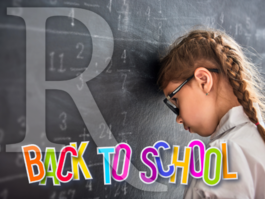Berkeley High's Next Science Experiment
A Commentary By Debra J. Saunders
If liberal politics and good intentions helped all students learn, then Berkeley High School should be an exemplar to all California. Yet, according to its governance council, Berkeley High was identified last year as the high school with "the largest racial equity/achievement gap in the state."
The worst part, as far as low-performing students are concerned, is that you can't expect the school district to turn its record underachievement around -- not when its governance council, which makes recommendations to the school board on operations, approves a plan with a preamble that quotes Karl Marx: "From each according to his (or her) ability, to each according to his (or her) need."
Then there's the science lab issue. Last month, the East Bay Express reported that the council was working to eliminate science labs at Berkeley High. The story burned through the Internet as it fed into the town's stereotype as a left-wing bubble that puts political correctness before all else.
The story also bolstered the common suspicion that some educators want to close the achievement gap by dumbing down public schools. As Peggy Scott, a governance council parent who voted against the plan, told KQED's "Forum's" Michael Krasny on Wednesday, "Closing the achievement gap really means bringing the bottom up, and the problem is that it does seem and it does feel like what might be happening is trying to bring the top down."
It turns out, as The Chronicle's Jill Tucker later reported, Berkeley High's science labs are conducted before or after school. As district spokesman Mark Coplan explained, years ago, the district decided to use parcel tax money to fund labs -- which meant they had to be extracurricular. When you have science labs before or after the regular school day, some kids can't make them.
Berkeley Unified Superintendent William Huyett contends that the district did not plan to get rid of science labs, but to "integrate the labs into the regular school day" -- which could benefit some students. The school board will look at the issue next month.
That said, action-plan supporters on the governance council have to own up to the fact that they are talking about taking something away from Advanced Placement and college prep students. As science teacher Mardi Sicular-Mertens told KQED, eliminating the labs means eliminating about 20 percent of instructional time from a program with "a proven track record."
Another cause for alarm: It is not clear where the money that went to this academic program will go, other than toward unnamed "equity grants."
Scott told me that the governing council never voted on the Marx-loving preamble. That's good to know, given this language: "Every students (sic), particularly" minority students, "have access to rigorous culturally-relevant curriculum that empowers them to be active participants in creating a more just society AND have any support they need to access and excel in curriculum."
Here's an example: "de-track" freshman math in favor of "heterogeneous classes." Beware: Those terms are educratese for dumping honors and dumbing down content.
The result will not be a more just society. Instead, a declining number of Berkeley High students will be able to do the math.
COPYRIGHT 2010 CREATORS.COM
See Other Political Commentary
See Other Commentary by Debra J. Saunders
Views expressed in this column are those of the author, not those of Rasmussen Reports.
Rasmussen Reports is a media company specializing in the collection, publication and distribution of public opinion information.
We conduct public opinion polls on a variety of topics to inform our audience on events in the news and other topics of interest. To ensure editorial control and independence, we pay for the polls ourselves and generate revenue through the sale of subscriptions, sponsorships, and advertising. Nightly polling on politics, business and lifestyle topics provides the content to update the Rasmussen Reports web site many times each day. If it's in the news, it's in our polls. Additionally, the data drives a daily update newsletter and various media outlets across the country.
Some information, including the Rasmussen Reports daily Presidential Tracking Poll and commentaries are available for free to the general public. Subscriptions are available for $4.95 a month or 34.95 a year that provide subscribers with exclusive access to more than 20 stories per week on upcoming elections, consumer confidence, and issues that affect us all. For those who are really into the numbers, Platinum Members can review demographic crosstabs and a full history of our data.
To learn more about our methodology, click here.



